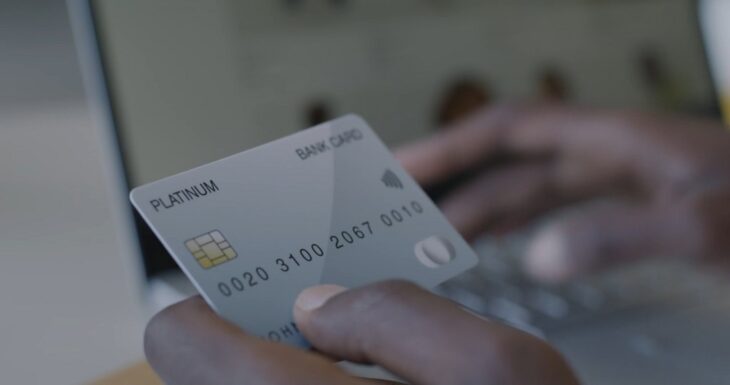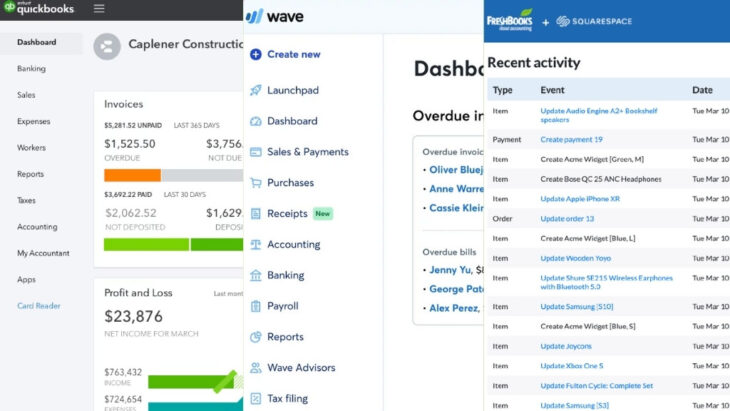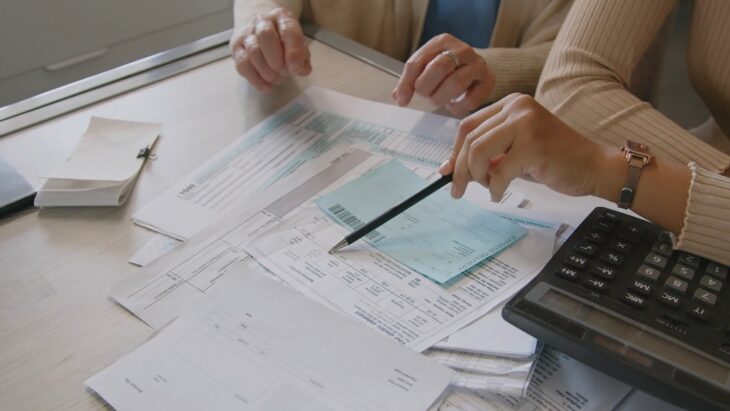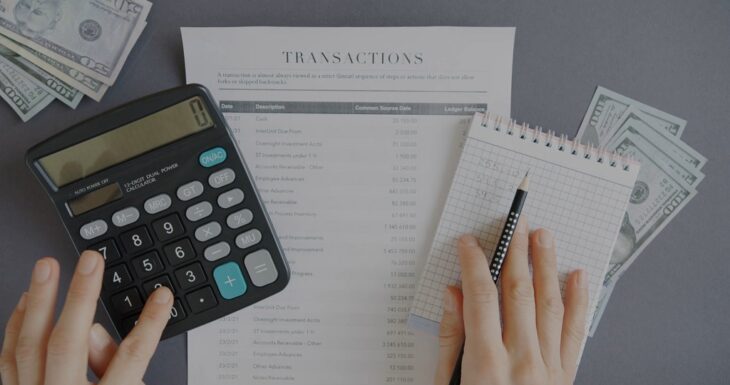Proof of income plays a critical role in modern financial life. Lenders, landlords, and even credit card issuers often ask for documented evidence of earnings before granting access to services.
For freelancers paid in cash, proving income can become a real challenge.
Traditional employees have payroll slips and automated deposits, while freelancers face the problem of limited official records.
Lack of a digital trail makes it harder to satisfy requests for financial proof, yet solutions exist to overcome this dilemma.
Practical Methods to Show Proof of Income (If Paid in Cash)
Freelancers often face the challenge of proving income in situations where cash payments are the norm.
Financial institutions, landlords, or even government agencies usually ask for documents that demonstrate consistent earnings.
Having multiple ways to verify income not only increases credibility but also ensures preparedness when proof is required quickly.
1. Create Your Own Pay Stubs

Creating personal pay stubs is one of the easiest ways to simulate traditional payroll records.
With a paystub generator online or pre-made templates, freelancers can generate detailed documents that highlight essential payment details.
These records are especially useful when presenting proof to banks or rental agencies that expect formal documents.
Important elements to include:
- Client name or business name
- Description of services rendered
- Date of service and date of payment
- Amount paid per project or per hour
Well-prepared pay stubs establish professional credibility and bridge the gap left by the absence of employer-issued paychecks.
2. Keep Detailed Invoices
Invoices act as the backbone of freelance financial documentation.
A properly structured invoice creates a permanent record that pairs services with payments.
Regular use of invoices strengthens financial transparency and proves that income sources are legitimate.
Essential components of a strong invoice include:
- Numbered invoice for easy tracking
- Clear date of issue
- Service description with details
- Amount charged and payment due date
Invoices should align with payments received, making them easier to cross-check with bank records or client statements.
3. Maintain a Receipts Book

A receipts book functions as a log of day-to-day transactions.
By writing down each payment received, freelancers create a running record that mirrors income.
Including client signatures when possible adds credibility to each entry and shows evidence of mutual acknowledgment.
Each receipt should contain:
- Date of payment
- Service provided
- Amount received
- Client signature (optional but recommended)
Over time, a well-kept receipts book becomes a powerful support document for proving consistent income.
4. Deposit All Cash into a Bank Account

Depositing cash payments into a bank account provides a digital record that institutions accept as proof of financial activity.
Regular deposits also reflect responsibility and create consistency in how money is managed.
Benefits of regular deposits include:
- Clear transaction history is visible on bank statements
- Proof of recurring income over time
- Easier reconciliation with invoices and receipts
Financial institutions often rely on bank statements as one of the most trusted sources of income verification, making this habit particularly effective.
5. Use a Spreadsheet or Income Ledger
A spreadsheet or income ledger is a simple but highly effective method to track income.
By recording payments consistently, freelancers can present a timeline of work that highlights patterns of reliability.
Details worth recording include:
- Client name
- Date of payment
- Amount earned
- Type of service provided
Spreadsheets also provide flexibility, allowing totals, averages, and charts to be generated when needed, which makes the income presentation even stronger.
6. Leverage Bookkeeping Software or Apps

Digital tools have transformed the way freelancers can handle income documentation.
Bookkeeping software not only organizes transactions but also creates reports that are tax-ready and highly credible.
QuickBooks, FreshBooks, and Wave are widely used options that streamline the entire process.
Features that make bookkeeping tools valuable:
- Automated profit and loss reports
- Easy invoice generation
- Receipt scanning and storage
- Exportable data for tax preparation
Having digital reports generated by reputable software often reassures lenders and landlords about the authenticity of earnings.
7. File Taxes Consistently

Filing taxes on freelance income is both a legal duty and an opportunity to build trustworthy financial records.
Tax returns serve as one of the most reliable forms of proof because they are verified by government agencies.
Advantages of filing regularly include:
- Providing legal documentation of income
- Avoiding complications with the IRS
- Building long-term credibility with financial institutions
Freelancers with complex income sources may benefit from working with a certified public accountant to ensure accuracy and compliance.
8. Use Employment or Client Verification Letters
Client verification letters provide personal confirmation of income, directly linking work done with payments received.
Such letters can substitute for traditional employment records and offer additional credibility in rental or loan applications.
Elements that a verification letter should include:
- Description of services provided
- Frequency of work
- Payment history and consistency
Letters signed by clients give institutions confidence in the legitimacy of freelance income.
9. Present Signed Contracts
Contracts provide a legal framework that validates work agreements.
They specify terms, payment details, and duration of engagement, making them valuable in proving recurring income streams.
Contracts should highlight:
- Scope of work or project description
- Payment terms and agreed rates
- Start and end dates or ongoing duration
When combined with invoices and receipts, contracts form part of a comprehensive proof package that demonstrates consistent earnings.
Best Practices for Freelancers

Freelancers who rely on cash payments often need to be extra disciplined with financial documentation.
Strong habits not only protect income but also provide peace of mind when proof is requested by lenders, landlords, or tax authorities.
Building these practices into a routine prevents stressful situations later on.
Key best practices include:
- Be Consistent: Always record income immediately after receiving payment. Delaying record-keeping increases the risk of errors or forgotten details.
- Be Organized: Store both digital and paper copies of all records. Cloud storage offers backup security, while hard copies serve as physical proof when needed.
- Be Transparent: Report all cash income during tax season. Full disclosure ensures compliance with the IRS and avoids legal consequences.
- Be Proactive: Do not wait until financial institutions demand proof. Build a clear paper trail throughout the year to avoid last-minute scrambling.
Freelancers who follow these practices consistently find it easier to secure loans, sign leases, and maintain credibility in both professional and personal financial matters.
Tools to Simplify the Process
Technology has made income tracking far easier for freelancers compared to traditional pen-and-paper methods.
Reliable tools can automate calculations, organize documents, and generate reports that institutions trust.
Choosing the right set of tools ensures accuracy and saves valuable time.
Useful tools include:
- Bookkeeping Software: Programs such as QuickBooks, FreshBooks, and Wave automate accounting tasks, generate profit and loss statements, and organize transactions in one place.
- Cloud-Based Spreadsheets: Google Sheets or Excel stored in the cloud allow real-time updates and version history, ensuring records remain accessible and tamper-proof.
- Receipt and Invoice Apps: Mobile tools such as FreshBooks simplify capturing receipts on the go, storing them digitally for tax season or verification purposes.
Using these tools reduces manual effort and makes it easier to maintain consistent and professional documentation.
Common Mistakes to Avoid
Even freelancers with good intentions can fall into habits that weaken their ability to prove income.
Recognizing these mistakes early prevents unnecessary complications with financial institutions or tax authorities.
Common pitfalls include:
- Not Recording Income Immediately: Delaying documentation creates gaps that may be difficult to fill later. Small errors accumulate over time and reduce credibility.
- Mixing Personal and Business Finances: Combining accounts blurs income tracking, making it harder to separate personal expenses from business earnings. Maintaining dedicated accounts keeps finances clear.
- Underreporting Cash Income: Attempting to reduce tax obligations by failing to declare all income can result in penalties, audits, and long-term damage to financial trust.
- Relying on One Method Only: Solely depending on receipts or bank deposits may not provide enough proof. Combining methods such as invoices, contracts, and bookkeeping software creates a stronger record.
Avoiding these mistakes ensures that freelance income records remain accurate, trustworthy, and ready for use when proof is required.
The Bottom Line
Freelancers who rely on cash payments must actively build their financial paper trail.
Consistent documentation through pay stubs, receipts, invoices, and tax filings ensures credibility in front of landlords, lenders, and government agencies.
Building habits today saves major problems tomorrow.
Automating processes with digital tools and maintaining discipline in record-keeping can transform freelance income into verifiable proof accepted by any institution.


